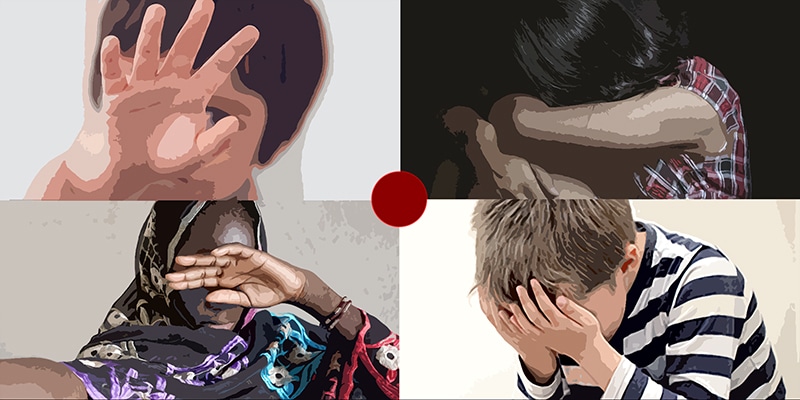Did You Ever Suffer From Adverse Childhood Experiences?
In a Nutshell
Adverse Childhood Experiences, (or ACEs for short), encompass different types of traumatic childhood encounters that take place prior to age 18. These include: physical, emotional and sexual abuse, emotional and physical neglect, and being subjected to household dysfunction. The latter can be a result of: incarceration in the home; domestic violence; a separation/divorce; mental illness; or substance abuse (illicit drugs, overused prescription medication, and/or alcohol) [1, 2].
In addition to the aforementioned, ACEs can also be brought about by other adverse aspects of childhood life. These comprise: community violence, bullying, wartime or refugee experiences; witnessing or being subject to acts of terrorism; and living through a natural disaster (such as extreme flooding of the neighbourhood that caused fatalities, and the loss of homes) [1].
The term, ACEs was coined in a 1997, Centres for Disease Control and Prevention (CDC) and Kaiser-Permanente study, and it is now universally acknowledged within the public health sphere [2].
Did You Know?
The extremely harmful nature of Adverse Childhood Experiences can be long-lasting, and still impact sufferers throughout their adulthood
Moreover, as Harvard states: “the more ACEs a child experiences, the more likely the child will be inclined to suffer from things like heart disease & diabetes, poor academic achievement and substance abuse later in life. Furthermore, ACEs can have a tremendous impact on future violence victimization & perpetration” [1, 3]
A good analogy to this excessive stimulation of the stress response system, is continually revving up a car engine for weeks or days at a time. This would result in chronic wear and tear on both the engine and the body of the car. In the case of humans, it is long-term wear and tear on the brain and body. So what’s the answer? How can we finally address these underlying issues that are negatively affecting multiple aspects of our lives as adults?
The Low Down on Conditions Caused by ACEs
Children who experience physical abuse, may be more inclined to be violent themselves. And this may even include neglecting or abusing their own children when they become parents. Moreover, they could be re-victimised as a child, adolescent, or adult.
A wealth of research from top institutions in the US and elsewhere, indicate that the following later life health conditions and habits can be the result of Adverse Childhood Experiences:
• Heart Disease
• Stroke
• Asthma
• COPD
• Cancer
• Kidney Disease
• Diabetes
• Obesity
• Autoimmune Disease
• Depression
• PTSD
• Anxiety
• Toxic Stress
• Anger Management Issues
• Smoking
• Alcoholism
• Substance Abuse
• Physical Inactivity
• Risky Sexual behaviour
• Unemployment
• Isolation
• Poor Academic Achievement (less than a high school diploma) [1, 2].
Taking Action
Fortunately, as substantial research shows, there is light at the end of the tunnel, and mitigating the effects of ACEs, is open to everyone.
As Harvard notes; “ACEs affect people at all income & social levels, and can have serious, costly impact across the lifespan. No one who’s experienced significant adversity (or many ACEs) is irreparably damaged, though we need to acknowledge the trauma’s effects on their lives” [1]
So Where Can You Go From Here?
The first professionally recommended stop, is taking the 5 minute 118ͼ�� (118ͼ��) free quiz, entitled: “The Adverse Childhood Experiences Test,” which comprises 10 super-short, simple questions, about common traumatic events in your early development that you experienced prior to your 18th birthday.
While this is a limited test, and on this occasion, genetics aren’t considered; nor are questions about positive experiences, happy relationships, and more adverse scenarios; on a positive note, taking this quiz can enable a better understanding of yourself. Moreover, it will link you up to the long established 118ͼ��, and its useful tools and programmes. Aspects that will create a more in-depth picture, and a better understanding of how you have been impacted on your personal life journey.
Your answers to the 10 questions will culminate in a score. If this is high, it will serve as an indicator that your ACEs are the cause of certain challenges that you are now facing in your adult life. These include: social and emotional difficulties, relationship issues, and a higher risk of specific health problems. To that end, it’s very important to take a one-off, 5 minutes out of your day, to find out more.
We Are All Different
It is necessary to be mindful of the fact that everyone of us are affected by ACEs differently. To that end, even if you did live through a significant number of unwelcome traumas, you may nonetheless, be one of the participants who achieves a low quiz score, simply because such events toughened you up. You developed fortitude and resilience, assets which empowered you to overcome serious hardship.
Want to Find Out if You Suffered From ACEs?
Take the Free 5 Minute Quiz Right Now!
References
[1] Harvard (2022). “ACEs and Toxic Stress: Frequently Asked Questions.”
[2]. Baylor University (2019). “The Link Between Adverse Childhood Experiences and Later-Life Health.”
[3]. Centers of Disease Control (2022). “Adverse Childhood Experiences.”

